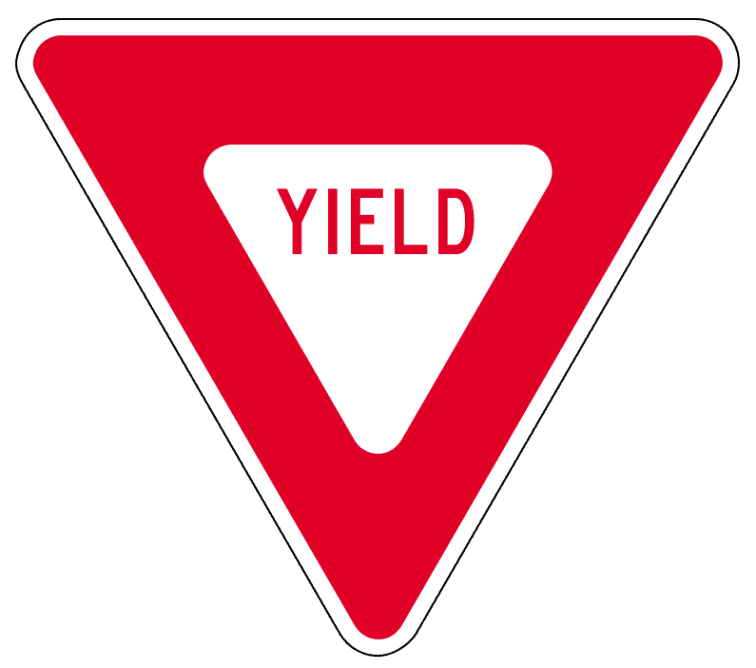Who Has the Right-of-Way?
December 23, 2013 | Category: Automobile Accidents | Share In Florida, “No One” has the right- of-way.
In Florida, “No One” has the right- of-way.
“According to the 2013 Florida Driver’s Safety Handbook, Florida law only states who must yield, or give up, the right-of-way. Every driver, motorcyclist, moped rider, bicyclist, and pedestrian must do everything possible to avoid a crash,” reminds attorney Randall Spivey of Spivey Law Firm, Personal Injury Attorneys, P.A.
Whether drivers believe they entered an intersection first, or not, they should wait, and check to be sure other drivers have seen them.
Open Intersections – Open intersections are intersections where there are no traffic controls or signals. When entering open intersections, drivers must yield the right-of-way if:
-
A vehicle is already in the intersection.
-
The driver is entering or crossing a state highway from a secondary road.
-
Driver enters a paved road from an unpaved road.
-
Driver plans to make a left turn, and a vehicle is approaching from the opposite direction.
-
When two vehicles enter an intersection at the same time, the driver on the left must yield to the driver entering from the right.
Roundabouts – Roundabouts were designed to reduce traffic crashes and improve traffic flow. Most roundabouts do not require a driver to stop. Moving continuously through intersections at the same low speed in a counterclockwise direction, traffic experts believe reduces traffic crashes. Drivers approaching a roundabout are to yield the right-of-way to the circulating traffic. However, drivers must obey all signs to determine the correct right-of-way for the roundabout.
Four Way Intersections – Florida law says that when drivers approach a four-way stop, the first driver to come to a complete stop is given the right to pull through the intersection. Should more than one driver come to a complete stop at the same time, the driver on the left is to yield the right-of-way to the driver on the right.
Expressway Driving – When auxiliary roads lead into major roads, usually there will be a “Yield” sign. Motorists must yield the right-of-way when entering an expressway. Drivers cannot always count on others to move over a lane to allow room to enter the expressway. Florida law states that when approaching a yield sign, drivers should slow down or even stop before proceeding.
Move Over Law - Florida Statute 316.126 covers the “Move Over Law”. This Statute states: “When an authorized emergency vehicle making use of any visual signals is parked or a wrecker displaying amber rotating or flashing lights is performing a recovery or loading on the roadside, the driver of every other vehicle, as soon as it is safe:
-
Shall vacate the lane closest to the emergency vehicle or wrecker when driving on an interstate highway or other highway with two or more lanes traveling in the direction of the emergency vehicle or wrecker, except when otherwise directed by a law enforcement officer. If such movement cannot be safely accomplished, the driver shall reduce speed as provided in paragraph 2.
-
Shall slow to a speed that is 20 miles per hour less than the posted speed limit when the posted speed limit is 25 miles per hour or greater; or travel at 5 miles per hour when the posted speed limit is 20 miles per hour or less, when driving on a two-lane road, except when otherwise directed by a law enforcement officer.
Emergency Vehicles – Florida Statute 316.126 also requires others to yield the right-of-way “Upon the immediate approach of an authorized emergency vehicle, while en route to meet an existing emergency, the driver of every other vehicle shall, when such emergency vehicle is giving audible signals by siren, exhaust whistle, or other adequate device, or visible signals by the use of displayed blue or red lights, yield the right-of-way to the emergency vehicle and shall immediately proceed to a position parallel to, and as close as reasonable to the closest edge of the curb of the roadway, clear of any intersection and shall stop and remain in position until the authorized emergency vehicle has passed, unless otherwise directed by any law enforcement officer.”
Funeral Processions – Funeral processions are defined in Florida law as two or more vehicles accompanying the body of a deceased person, or traveling to the church, chapel, or other location at which the funeral service is to be held, in the daylight hours, including a funeral lead vehicle or funeral escort vehicle. There must be a funeral lead car or law enforcement escort. Vehicles in funeral processions must have their headlights on as a signal to other drivers that they are part of the funeral procession and not to drive between the procession. When the lead car enters an intersection legally, all other vehicles in the procession may follow behind it, even if a traffic signal may turn red. Other vehicles are to yield the right-of-way.
Lee County Accident Attorney, Randall L. Spivey is a Board Certified Trial Attorney – the highest recognition for competence bestowed by the Florida Bar and a distinction earned by just one (1%) percent of Florida attorneys. He has handled over 2,000 personal injury and wrongful death cases throughout Florida. For a free and confidential consultation to discuss your legal rights, contact the Spivey Law Firm, Personal Injury Attorneys, P.A., in Lee County at 239.337.7483 or toll free at 1.888.477.4839,or by email to Randall@spiveylaw.com. Visit SpiveyLaw.com for more information. You can contact Spivey Law Firm, Personal Injury Attorneys, P.A.in Charlotte County at 941.764.7748 and in Collier County 239.793.7748.

